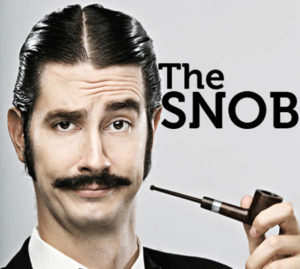A recent article I wrote titled "Anecdotes versus evidence" tried to explain the difference between an interesting story with an extraordinary claim and real evidence of a phenomena obtained via the scientific method. Quite predictably, there was a critic lurking on social media who wanted to challenge the crux of the article without bothering to evaluate the content. In the article I had listed three specific examples of extraordinary claims that apparently could be evaluated using credible scientific evidence proving beyond reasonable doubt that strict materialism was false, and that the metaphysical mind can learn new information even when temporarily separated from the physical brain. The idea behind writing the article was to provide the information and people who disagreed with me could fairly evaluate the same evidence and argue my interpretation of what the evidence meant. This critic merely assumed the evidence to which I referred was no better than any other alleged evidence he'd ever seen, and refused to look at the evidence I had offered. Instead, he wanted to challenge my methodology so he could downgrade the evidence back to only anecdote. My answer was quick and easy: I had actually looked at the evidence. I didn't just make an assumption. The direction of his line of inquiry soon became clear: my critic wanted me to acknowledge that I was simply taking the word of witnesses as gospel truth without questioning their veracity. That will only work if we apply the same standard in every situation. How do we know anything is true? The reality is … [Read more...]
Atheism and life after death
Why are atheists so adamantly opposed to the idea that consciousness could possibly survive physical death of the human brain? For several years now, I've conducted personal research mostly to satisfy my own curiosity about what might happen when we die. I've read dozens, if not hundreds of articles describing various scientific studies of the near death experience to learn what doctors and scientists think they have discovered about this phenomena. I've personally interviewed people making NDE claims. I seen enough and read enough to believe that the mind and brain separate at death. The spiritual mind survives; the physical brain does not. Dr. Bruce Greyson established what is now called the Greyson NDE scale of 16 specific attributes many alleged NDE claims share in common. These attributes include seeing a bright light at the end of a tunnel, reuniting with dead relatives, the sensation of leaving their physical body, etc. My atheist friends have vehemently argued that these events are hallucinogenic in nature, originating from chemicals produced by the dying brain to make the transition to death more pleasant and less traumatic. However, the typical atheist's arguments are fatally flawed, for two reasons. First of all, not every NDE is a pleasant or euphoric experience. Some are quite terrifying. After learning about his experience from the television program I Survived: Beyond and Back, the reason I sought to interview Matthew Botsford in particular was because he was by every account an innocent bystander accidentally gunned down in a drive-by shooting … [Read more...]



